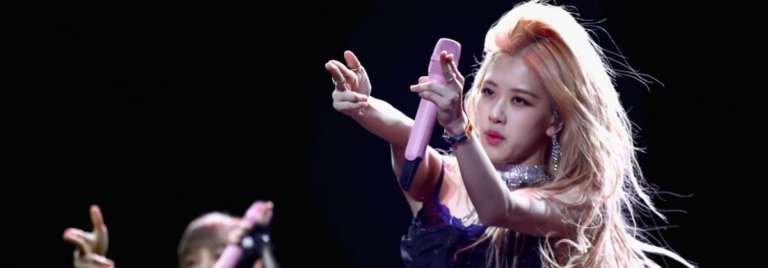
Fans know her as the high note-hitting talent of South Korea’s most successful pop group. The world knows her as a member of the most-subscribed music group on YouTube, its music video “Ddu-Du Ddu-Du” the most-viewed of any K-pop groups on the social media channel. Rose Blackpink is now one of the world’s most successful pop stars, with a new single with Blackpink “How You Like That” dropping today, a full comeback album later in 2020, and another solo release soon after.
More success is in the charts for Rose Blackpink, but where did it all begin?

As a student in Melbourne, music was just a hobby, not a career path yet. Source: Rich Fury/Getty Images North America/Getty Images via AFP
The vocalist was born in Auckland, New Zealand and spent her childhood in Melbourne, Australia. As Eton College maketh Prime Ministers, Hanlim Multi Art produces K-idols, schools play an influential role in any child’s development, including Roseanne Park.
Here are four things you probably didn’t know about Rose Blackpink’s school, the Canterbury Girls Secondary School in Melbourne:
1. It has a long history
Established in 1928 as East Camberwell Girls’ School, the school survived through World War Two and adopted several name changes. In 1961, the name Canterbury Girls’ High School was adopted. Nearly three decades later, the name was changed to Canterbury Girls’ Secondary College in line with government policy.
The school’s motto is “Fervet Opus”. This appears on the College’s blazer pocket and means working diligently — an early indication of the hard work she would endure as a K-pop idol in the future?
According to the South China Morning Post, Rose studied law at the Canterbury Girls’ Secondary College in Melbourne before she attended an audition in Australia for South Korean record label YG Entertainment and emerged first. She signed with the label two months after, moved to Seoul and rest is history.
Speaking to Sydney Morning Herald, Rose said music was a mere hobby for her growing up in Australia.
“In Australia, I didn’t think that there was much of a chance for me to become a singer — especially to become a K-pop star … I was living so far from the country that it never really occurred to me as a possibility,” the singer said.

Rose Blackpink’s school had a surprise visit from one of the reigning queen of pop music when Blackpink toured Australia last year. Source: Rich Fury/Getty Images North America/Getty Images via AFP
2. It’s an all-girls school
It is only one of five government girls’ schools in Victoria.
Some of the benefits of attending an all-girls’ school include a higher likelihood of not dropping out and improved student achievement.
According to research by Professor Cornelius Riordan of Providence College, there could be several reasons behind this better academic outcome, such as strong role models, reduced stereotypes in curriculum and classroom interaction, and an abundance of leadership opportunities.
3. Rose Blackpink’s school produced many notable alumnae
The school is alma mater to Suzanne Cory, one of Australia’s most distinguished molecular biologists.
Her work on the genetics of the immune system and cancer has had a major impact in the fields of immunology and cancer. She sits on the Australian National University’s Honorary Degrees Committee, which advises the Council, the Academic Board and the Vice-Chancellor.
Other notable alumnae include Fox Sports News (Australia) Catherine Durkin, actress Esther Hannaford and Sky News Australia television presented Rita Panahi.
4. It has a programme for international students
According to the College’s website, the International Student Program “expands students’ awareness of other cultures and in doing so enriches us as well as providing international students with an understanding of Australian life.”
“i can’t go back to australia without making all of this work” 🥺 A very emotional video about her growth as an artist but also as herself, Rosé.#FourYearsWithRosé #BLACKPINK #블랙핑크 #로제 #ROSÉ @ygofficialblink
pic.twitter.com/I8z9x1J7Vf— 채라이언나이즈 ROSÉ (@RoseannexDays) June 21, 2020
“The broad co-curricular program provides many opportunities for all students to interact with each other beyond the classroom. In doing so, relationships and understanding are strengthened.”
The Program only accepts international students for Years 10 to 12 with a high level of English proficiency and with an approved relative to provide accommodation, welfare and arrival support.
Liked this? Then you’ll love…
Here’s where Jennie Blackpink went to international school
From college to K-pop stardom: How education helped these multi-talented performers







